One moment please
You are now being redirected to University of Galway to start an application
Green Labs Principles and Practice

Course delivery occurs outside of a physical classroom, and generally takes place online.
Microcreds overview
This module aims to provide a general overview of key environmental concepts such as climate change, plastic pollution, principles of sustainability, sustainable development goals, and biodiversity. It will briefly explore how perspectives from psychology, sociology, communication, circular and doughnut economy, and the study of ethics and governance provide us with insights into how perception and behaviour influence responses to environmental issues. In addition, the life-cycle of materials, and the environmental impact of the resources and equipment typically used in scientific laboratories will be examined in some detail. These ideas will form the backdrop to a focused study on how the organisation of, and practices in, scientific laboratories can be reformed to reduce their environmental footprint and be established on a more sustainable basis.
What you'll learn
- The earth's climate system and factors influencing climate change.
- Psychological and social influences on your own and others about climate change, biodiversity loss, and other environmental challenges.
- Principles of sustainability and planetary boundaries exceeded.
- Local/regional environment impacted by climate change.
- Relevant government or supranational (eg. E.U.) policies that address climate change, greenhouse gas emissions and loss of biodiversity.
- Chemical formula for different kinds of plastic used in labs and their potential cradle-to-grave impact on the environment.
- Circular and doughnut economy policies and practice.
- Sustainability Development Goals.
Requirements
Applicants should be over 21 years. Please note these codes when selecting your course on our university application page to ensure you are joined to the appropriate programme: BME5107 and Science and Engineering Micro-credentials CPC15.
For employers
If you are a HR professional and wish to discuss further collaborations on skills gaps at your company please contact us on microcreds@universityofgalway.ie
- Describe the main components of the Earths climate system, the key factors that influence climate change.
- Summarise psychological and social influences on your own and others' behaviour in response to learning about climate change, biodiversity loss, and other environmental challenges.
- List and describe the core principles of sustainability (including sustainability metrics') and indicate which planetary boundaries are currently exceeded.
- Report on how your local/regional environment is, or is expected to be, impacted by climate change and identify relevant government or supranational (eg. E.U.) policies that address climate change, greenhouse gas emissions and loss of biodiversity.
- Provide the chemical formula for at least four different kinds of plastic that are commonly used in labs and describe their potential cradle-to-grave impact on the environment.
- Provide examples of circular and doughnut economy policies and practice that are being implemented within and outside the EU and cite possible limitations to the CE business model.
- Advise on the adoption of green practices within research and teaching laboratories in higher education, with particular reference to the four pillars of Energy, Waste, Water and Chemistry.
- Justify alignment of module content with the following Sustainable Development Goals: Quality Education; Decent Work and Economic Growth; Industry, Innovation and Infrastructure; Sustainable Cities and Communities; Responsible Consumption & Production; Climate Action; Life on Land and Partnership for the Goals.
Continuous Assessment
Got more questions?
If you need more information you can email us on microcreds@universityofgalway.ie or if you want to register your interest in this course, please feel free to contact us.
